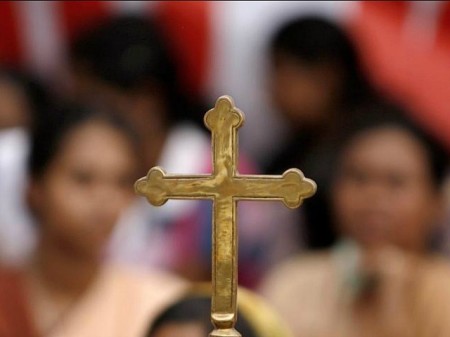Nepal: President Signs Law Criminalizing Evangelism, Human Rights Group Warns

The President of Nepal Bidhya Devi Bhandari has signed into law legislation that makes religious conversion a crime, the international human rights group Christian Solidarity Worldwide has reported.
In a press release issued Friday, CSW, a human rights group accredited with United Nations consultative status, reports that Bhandari signed into law on Oct. 16 criminal code legislation that contains clauses that criminalize religious conversion and the "hurting of religious sentiment."
Bhandari's reported signing of the criminal code bill comes after lawmakers passed the legislation in August. At the time, it was reported that religious conversion would be punishable by up to five years in prison while hurting religious sentiments would be punishable up to two years in prison. The president was urged by religious freedom activists not to sign the law.
"We are deeply saddened that this bill is now law," Pastor Tanka Subedi, the founding member and chair of Dharmik Chautari Nepal and Religious Liberty Forum Nepal, was quoted as saying in the CSW press release. "Our appeals to the president and other policy makers to amend this have been ignored. Nepali government have taken a regressive step as this law severely restricts our freedom of expression and our freedom of religion or belief."
The passing of Nepal's new criminal code legislation comes as states in neighboring India have passed their own anti-conversion laws.
"We have seen how anti conversion laws in India and blasphemy laws in Pakistan are used to fuel religious tension and target religious minorities," CSW Chief Executive Mervyn Thomas said in a statement. "Article 26(3) of the Nepali constitution has already been used in this way, as seen in the case of eight Christians in Charikot, who were charged with forcible conversion after distributing Christian comic booklets."
According to CSW, Bhandari signed the criminal code bill on the same day that the United Nations General Assembly elected Nepal as one of 15 new members to the United Nations Human Rights Council. It should also be noted that Pakistan has also been elected to the council.
"We urge the Nepali government to repeal this unjust law and amend Article 26 (3) of the constitution as they both curtail the right to freedom of religion or belief and undermine Nepal's commitments under international law, a contradiction made even more striking as Nepal assumes its seat on the Human Rights Council," Thomas added.
As previously reported, it was feared that Clause 160 in Section 9 of the legislation passed by the Parliament, the portion that bans religious conversions, could be used to limit a wide variety of religious expression and belief. There is also fear that the clause could be used to claim that charitable activities of religious groups or people speaking about their faith are attempts at conversion.
In addition, CSW has previously warned that Clause 158, which bans the "hurting of religious sentiment" is similar to the controversial blasphemy laws of Pakistan, which have been abused with a level of impunity by Muslims looking to settle scores with non-Muslims. Similarly, anti-conversion laws in places like India and Burma have been used to persecute religious minorities like Christians and Muslims.
Parliament member Lokmani Dhakal had requested in August that the two clauses in the legislation that could cause trouble for religious minorities be removed.
"It seems very clear to me that this country when preparing the civil code has forgotten it is a signatory to international treaties that protect the freedom of religion and human rights," Dhakal was quoted by CSW as saying. "Please don't let it be possible for the world to say of Nepal that we are the kind of nation that on the one hand signs international treaties but when making internal laws and in implementing them, does something else."





















